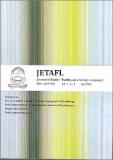| dc.contributor.author | Hutauruk, Bertaria Sohnata | |
| dc.date.accessioned | 2018-05-23T07:59:39Z | |
| dc.date.available | 2018-05-23T07:59:39Z | |
| dc.date.issued | 2016-06 | |
| dc.identifier.issn | 2459-9506 | |
| dc.identifier.uri | http://repository.uhn.ac.id/handle/123456789/1322 | |
| dc.description.abstract | This study aims at describing code switching used by the lecturers in the bilingual classes at Bunda Mulia University. The data is collected by recording the classes. The research questions are formulated as follows: (1) What are the types of code-switching used by the lecturers in the bilingual classes at Bunda Mulia University? (2) What motivates the lecturers to code switch in the bilingual classes at Bunda Mulia University? The recording is transcribed to identify the types of code switching and the motivations for code switching. Tthe objectives of the research are the following: To find out the types of code switching used by the lecturers in the bilingual classes at Bunda Mulia University and To find out the motivations of the lecturers to code switch between the languages in the bilingual classes at Bunda Mulia University. The result of this study is expected to contribute some knowledge about code switching in classroom setting to the students of language. The information comprises of code switching types usually produced by the lecturers in the process of teaching and learning activity in the bilingual classes. The data is analyzed in terms of Poplack’s framework in Hammers (1980), Hoffman’s (1991), and Saville Troike’s (1986). The result of the study revealed that the lecturers mostly used the intersentential code switching. The reasons for code switching are to make the students understand more easily the content of course, to clarify the content and to quote somebody else’s words or to quote an idea from a source of reference. | en_US |
| dc.language.iso | en | en_US |
| dc.publisher | Journal of English Teaching as a Foreign Language (JETAFE Publishing) | en_US |
| dc.subject | Code, Switching, bilingualism, | en_US |
| dc.title | Code Switching in Bilingual Classes: A case Study of Three Lecturers at Bunda Mulia University | en_US |
| dc.type | Article | en_US |

